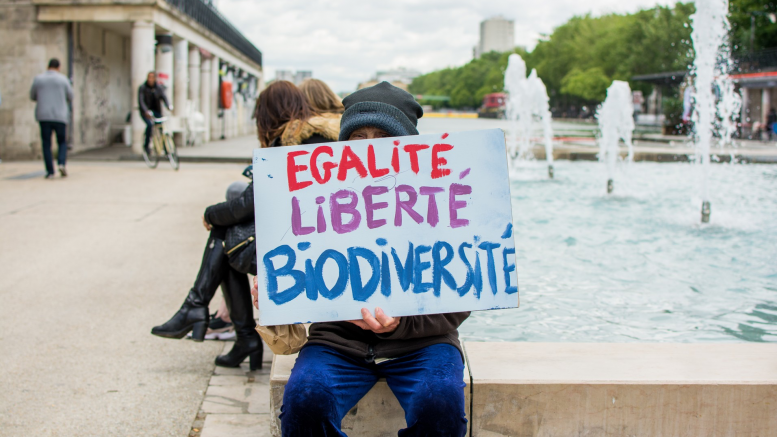This week marks five years since the notable Paris Agreement of 2015, yet 2020 looks ill-fated with regards to the environment.
2020 has been a significant year in terms of climate change with record-breaking CO2 levels and serious threats to World Heritage Sites. With Covid-19 taking centre-stage in world news and everyone’s lives, climate change has slowly gotten worse under the radar.
World Heritage Sites
According to the IUCN‘s latest report, Australia’s Great Barrier Reef has been categorised as “critical” in terms of conservation status. The cause? A combination of ocean acidification, increased ocean temperatures, and extreme weather.
The IUCN finds that climate change poses a threat to 33 per cent of natural World Heritage Sites. The COVID-19 pandemic led to a decline in tourism and there was less pressure on ecosystems. However, the pandemic did not improve the already existing issues in these natural sites.
Plastic
Break Free From Plastic has recently released its annual audit naming Coca Cola the biggest plastic polluter of 2020 for the third year in a row. Second down the list of corporate polluters is Pepsi Co, Nestle is third, fourth is Unilever and Mondelez Internation falls to fifth place on the list.
BREAKING: @cocacola, @PepsiCo, @Nestle, @Unilever & @MDLZ are the TOP 5 corporate plastic polluters of 2020. It’s the 3rd time they’ve been on the TOP 10 list!
We demand REAL accountability. 🙌🏾#BreakFreeFromPlastic #BrandAudit2020 Report is out now! 👉https://t.co/DfnZk47Zd8 pic.twitter.com/8eIKJArxF6
— breakfreefromplastic (@brkfreeplastic) December 2, 2020
Wildfires
2020 has seen the biggest wildfire season in California’s modern history with 9279 fires and 4.2 million acres burned down, equivalent to more than 108 times the size of London.
2020 will go down as Southern California’s smoggiest year since the mid-1990s, despite dramatic reductions in driving. How climate-fueled heat waves, wildfires and changing emissions worsened L.A.’s ozone pollution during the pandemic: https://t.co/YO3ydtnEtH pic.twitter.com/FAymdiljdu
— Tony Barboza (@tonybarboza) December 7, 2020
CO2 emissions
In 2020, CO2 levels reached a record of 418.32 parts per million in the atmosphere. Data from the International Energy Agency shows that the top polluting countries by CO2 emissions this year are China, the United States, India, Russia, and Japan. The United Kingdom is 17th on this list.
Today, UNEP released its annual Emissions Gap report, according to which “despite a dip in CO2 emissions caused by the pandemic, the world is still heading for a temperature rise in excess of 3°C this century.”
However, a “green pandemic recovery could cut up to 25 per cent off predicted 2030 greenhouse gas emissions.”
Latest @UNEP #EmissionsGap report shows that despite a dip in CO2 emissions caused by the pandemic, the world is still heading for a temperature rise in excess of 3°C this century.
A green #COVID19 recovery is essential to close the #ClimateAction gap. https://t.co/WcMum8oH5M
— United Nations (@UN) December 9, 2020
Global temperature
The average global temperature is at 1.2 °C degrees, which is 0.3 short of reaching the 1.5 °C, which was said to be the limit by the IPCC.
“Allowing the global temperature to temporarily exceed or ‘overshoot’ 1.5 °C would mean a greater reliance on techniques that remove CO2 from the air to return global temperature to below 1.5 °C by 2100.”
Fossil fuel
According to the UN’s 2020 Production Gap Report, the world must reduce fossil fuel production by 6 per cent per year until 2030 if we want to meet the goals set in 5 years ago in Paris and avoid the worst global warming.
“Countries are instead planning and projecting an average annual increase of 2 per cent, which by 2030 would result in more than double the production consistent with the 1.5°C limit.”
The report was released for the second time earlier in December, and it is aiming to monitor the developments made since the Paris Agreement.
The Climate Ambition Summit will take place on 12 December 2020 to mark the fifth anniversary of the Paris pledges. The United Nations, United Kingdom, and France will co-host the virtual event with Chile and Italy on board as well.
During the summit, parties are set to demonstrate their commitment to the Paris Agreement and come up with new strategies to reach long-term zero-net emissions.
The European Council is also set to meet this Thursday and Friday to discuss “new emissions reduction targets for 2030” among other important issues.
A busy agenda lies ahead for EU leaders at the European Council meeting this Thursday and Friday:
☑️ COVID-19
☑️ climate change
☑ external relations with 🇹🇷 and 🇺🇸
☑️ security and fight against terrorism▶️ Meeting info: https://t.co/t2562oe9Y5#EUCO#COVID19pic.twitter.com/TU0zTWrss6
— EU Council (@EUCouncil) December 9, 2020
Read more about climate change:
- London’s health costs due to air pollution amount to £10.32 billion a year
- Towards net-zero: no more sales of fossil fuel vehicles from 2030
Words: Sara Varga | Subbing: Leah Trimmer

